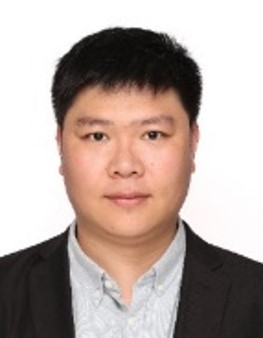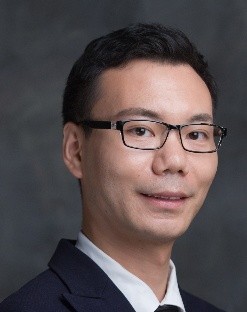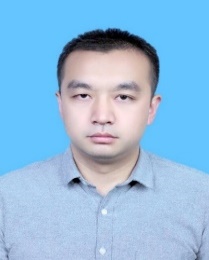
Invited Speakers (to be updated)

Prof. Ruxandra Mihaela Botez
ÉTS - Quebec Universitys, Canada
Dr Ruxandra Botez is Full Professor at ÉTS - Quebec University in Canada since 1998. She has obtained her Master in Engineering from the Faculty of Aircraft Design in Bucharest, Romania, Master in Applied Science from Ecole Polytechnique and PhD from McGill universities in Montreal, Canada. Ruxandra was also Postdoctoral Fellow at Auburn University in the USA and she has a 5 years industrial experience obtained from the Factory of Helicopters in Brasov, Romania and Bombardier in Dorval, Canada.
Ruxandra is the Canada Research Chair Tier 1 Holder in Aircraft Modeling and Simulation Technologies since 2011, and she is the Head of the Laboratory of Applied Research in Active Controls, Avionics and AeroServoElasticity LARCASE since 2003. Ruxandra is Fellow of the American Institute of Aeronautics and Astronautics (AIAA), Canadian Academy of Engineering (CAE), Canadian Aeronautical Society Institute (CASI) and Royal Aeronautical Society (RAeS), Honorary Foreign Member of the Romanian Academy and many other organizations. Ruxandra is member of two technical committees of AIAA: Adaptive Structures and Modeling and Simulation technical committees and she is also the Technical Chair of the AIAA SciTech 2024 Adaptive Structures Technical Committee.
Ruxandra is Editor-in-Chief of the INCAS Bulletin and Associate Editor of different other journals including the Aeronautical Journal. Ruxandra graduated more than 400 students in her academic career, who worked on her research projects: 30 PhD students, 140 master’s students (projects and theses) and 300 Internship students. Ruxandra published more than 200 archival original journal articles, 340 conference papers and 7 invited book chapters. Ruxandra and her team have obtained more than 70 awards; she also gave more than 50 invited speaker presentations. Ruxandra’s projects were and are realized in collaboration with various universities, aerospace companies and research institutes in Canada, such as Bombardier Aerospace, CAE, CMC Electronics, Bell Helicopter Textron, Thales Aerospace, GlobVision, FLIR Systems and IAR-NRC, in the USA with Presagis and NASA, in Italy with Alenia and CIRA, in Mexico with Hydra Technologies, in Germany with DLR, in Romania with the National Institute for Aerospace Research “Elie Carafoli”.
Ruxandra is the Canada Research Chair Tier 1 Holder in Aircraft Modeling and Simulation Technologies since 2011, and she is the Head of the Laboratory of Applied Research in Active Controls, Avionics and AeroServoElasticity LARCASE since 2003. Ruxandra is Fellow of the American Institute of Aeronautics and Astronautics (AIAA), Canadian Academy of Engineering (CAE), Canadian Aeronautical Society Institute (CASI) and Royal Aeronautical Society (RAeS), Honorary Foreign Member of the Romanian Academy and many other organizations. Ruxandra is member of two technical committees of AIAA: Adaptive Structures and Modeling and Simulation technical committees and she is also the Technical Chair of the AIAA SciTech 2024 Adaptive Structures Technical Committee.
Ruxandra is Editor-in-Chief of the INCAS Bulletin and Associate Editor of different other journals including the Aeronautical Journal. Ruxandra graduated more than 400 students in her academic career, who worked on her research projects: 30 PhD students, 140 master’s students (projects and theses) and 300 Internship students. Ruxandra published more than 200 archival original journal articles, 340 conference papers and 7 invited book chapters. Ruxandra and her team have obtained more than 70 awards; she also gave more than 50 invited speaker presentations. Ruxandra’s projects were and are realized in collaboration with various universities, aerospace companies and research institutes in Canada, such as Bombardier Aerospace, CAE, CMC Electronics, Bell Helicopter Textron, Thales Aerospace, GlobVision, FLIR Systems and IAR-NRC, in the USA with Presagis and NASA, in Italy with Alenia and CIRA, in Mexico with Hydra Technologies, in Germany with DLR, in Romania with the National Institute for Aerospace Research “Elie Carafoli”.

Assoc. Prof. Shaoke Wan
Xi'an Jiaotong University, China
Shaoke Wan, associate professor at Xi'an Jiaotong University, graduated from Xi'an Jiaotong University in December 2019 with a PhD in Mechanical Engineering. From September 2018 to September 2019, he underwent joint doctoral training at the University of British Columbia (UBC) in Canada. In March 2020, he was selected into Xi'an Jiaotong University's inaugural "Young Excellent Talent Program". His primary research interests include high-speed milling chatter monitoring and active suppression, intelligent machine tool spindle technology, and robotic intelligent navigation. He has led over 10 national key research and development projects, National Natural Science Foundation of China general/youth projects, China Postdoctoral Science Foundation, and Shaanxi Provincial Natural Science Foundation projects. He has published over 40 academic papers in major domestic and international academic journals and international conferences. He has obtained 24 patent grants, 4 software copyrights, and won a special award for outstanding achievements in scientific and technological research in higher education institutions in Shaanxi Province (ranked first) and a first prize in the China Machinery Industry Science and Technology Award (ranked fourth).

Assoc. Prof. Panpan Yang
Chang’an University, China
Panpan Yang received his B.S. and M.S. degrees in the School of Electronics and Control Engineering, Chang’an University, Xi’an, China, in 2008 and 2011, respectively, and the Ph.D. degree in the School of Marine Science and Technology, Northwestern Polytechnical University, Xi’an, China, in 2016. He is currently an Associate Professor with the School of Electronics and Control Engineering, Chang’an University, Xi’an, China. He is now also the dean of the depart of automation and the reviewer of many international journals. His main research interests include nonlinear control theory, modeling, control and analysis of flocking system, cooperative of intelligent robots and platoon control of intelligent and connected vehicles.

Assoc. Prof. Junxing Zhang
Guizhou University, China
Junxing Zhang is currently a master supervisor at the Key Laboratory of Advanced Manufacturing Technology of the Ministry of Education, Guizhou University. He is a member of the CAA, a lifelong member of the Intelligent Manufacturing Professional Committee of the Chinese Artificial Intelligence Society, and a peer review expert of international top journals such as IEEE TNNLSs, ISA Transactions, Journal of the Franklin Institute-Engineering and Applied Mathematics, International Journal of Robust and Nonlinear Control, Journal of Vibration and Control.
His research interests include the application of industrial big data and computational intelligence in adaptive control of electromechanical systems, advanced control (adaptive control, optimal control, and active fault-tolerant control) and learning optimization of complex industrial intelligent manufacturing systems, and the development of intelligent complex equipment. In recent years, He has undertaken research on over 10 research projects supported by the National Key R&D Program, the National Natural Science Foundation of China (key, general, and regional projects), the National Intelligent Manufacturing New Model Application Project, and the Provincial Natural Science Foundation, Guizhou University ESI Potential Discipline Enhancement Program key projects. He has published more than 10 papers in authoritative academic journals and authored more than 30 patents (including Chinese invention patents, USA invention patents).
His research interests include the application of industrial big data and computational intelligence in adaptive control of electromechanical systems, advanced control (adaptive control, optimal control, and active fault-tolerant control) and learning optimization of complex industrial intelligent manufacturing systems, and the development of intelligent complex equipment. In recent years, He has undertaken research on over 10 research projects supported by the National Key R&D Program, the National Natural Science Foundation of China (key, general, and regional projects), the National Intelligent Manufacturing New Model Application Project, and the Provincial Natural Science Foundation, Guizhou University ESI Potential Discipline Enhancement Program key projects. He has published more than 10 papers in authoritative academic journals and authored more than 30 patents (including Chinese invention patents, USA invention patents).
Copyright © 2026. ICMEE All rights reserved.
